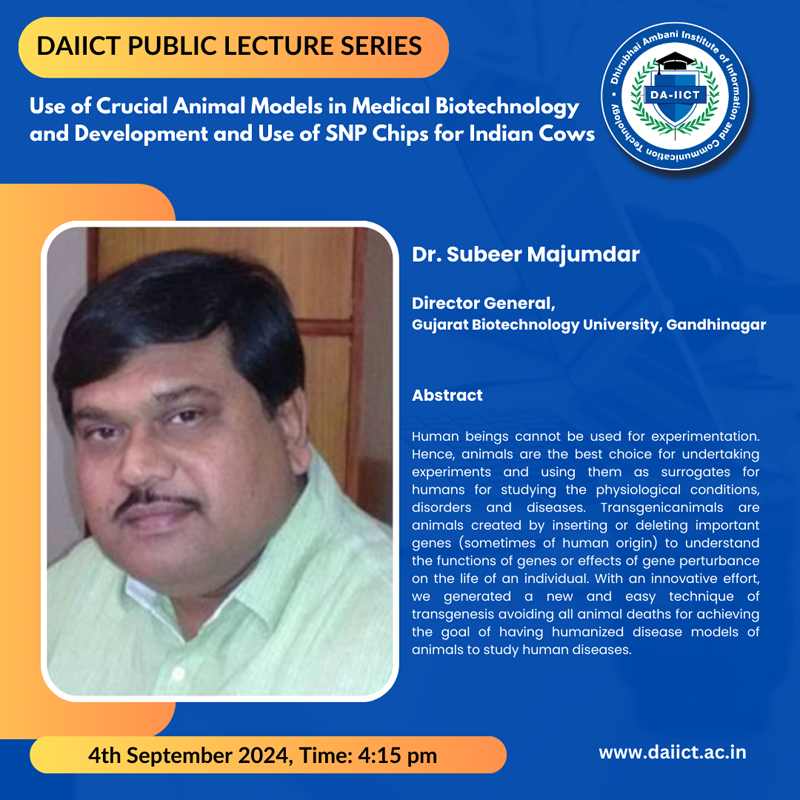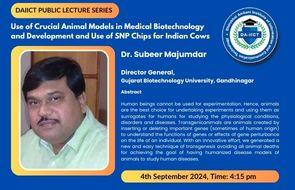Dhirubhai Ambani Institute of Information and Communication Technology, Gandhinagar
- PG Admissions 2023 Announced
- | Ph.D. Admissions 2023 Announced
- | Admission Helpline - Voice call: 080 66 91 91 80
- M.Tech. (EC) - last date 28th April 2022
- Admission Helpline - Voice call: 080 66 91 91 80
- UG Admissions - All India Category - Admission Status Announced
Events
DA-IICT PUBLIC LECTURE SERIES
We invite you all for the September edition of the monthly public lecture. This distinguished speaker this time is Dr. Subeer S. Majumdar, who is currently the Director General of Gujarat Biotechnology University, Gandhinagar. Dr. Majumdar has several years of research and administrative experience in some of the premier research laboratories of national importance. His lecture will be on the following topic:
Use of Crucial Animal Models in Medical Biotechnology and Development and Use of SNP Chips for Indian Cows
Venue: LT-1
Date: 4th September, 2024
Time: 4:15 pm
Abstract:
Human beings cannot be used for experimentation. Hence, animals are the best choice for undertaking experiments and using them as surrogates for humans for studying the physiological conditions, disorders and diseases. Transgenicanimals are animals created by inserting or deleting important genes (sometimes of human origin) to understand the functions of genes or effects of gene perturbance on the life of an individual. With an innovative effort, we generated a new and easy technique of transgenesis avoiding all animal deaths for achieving the goal of having humanized disease models of animals to study human diseases.
Dr. Subeer Majumdar served as a scientist at the National Instituteof Immunology, Delhi before he became the director of National Institute of Animal Biotechnology at Hyderabad, and later a distinguished professor at the same institute. Currently he is the Director General of Gujarat Biotechnology University. He has undertaken studies using differential genomics and functional genomics by generating transgenic mice and identified important genes which regulate male fertility. He has established a new technique of transgenesis via testicular route, published in Nature Methods. He has made seminal contributions in the field of metabolic disorder, diabetes, a collaborative work published in Nature Medicine. He has developed, along with his group, the first SNP chip using the next generation sequencing of genetic resources from Indigenous cows, mainly for the conservation of native breeds of cattle. He has also created a consortium for one health, funded by DBT.
ALL ARE WELCOME



